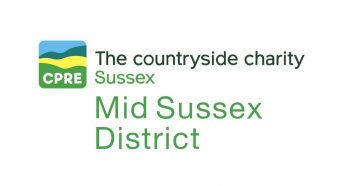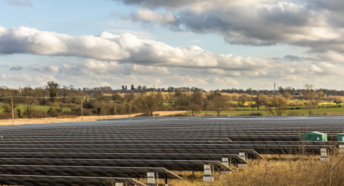Councillors revolt over government plans to dismantle planning system

CPRE, the countryside charity, and Friends of the Earth are joining more than 2,000 local councillors to call on the government to rethink its planning proposals and work with locally-elected representatives to create the places and homes communities so desperately needed.
A total of 2,062 local councillors have called on the government to abandon the most damaging elements of its changes to the planning system in an open letter to Robert Jenrick, Secretary of State for Housing, Communities and Local Government.
More than 350 of the councillors, or one in six of those who signed the letter, are Conservatives, which shows the breadth of opposition to the damaging changes within the Conservative Party itself.
In the letter, councillors warn that the proposed changes to planning will undermine the trust the public has in the planning system and “could radically reduce protections for nature, local green spaces and fail to tackle climate change”.
Local democracy is a major concern for the signatories, with the proposals as they stand leading to “an unacceptable loss of local democracy, scrutiny and accountability and worse outcomes for communities”.
The letter goes on to highlight the need for a strong local planning system to support sustainable development, community cohesion and a healthy environment but highlights that the government’s proposals as currently set out “will not achieve these goals”.
Crispin Truman, chief executive of CPRE, said: “The message from MPs, communities and now more than 2,000 councillors is clear, but it is not too late for the government to rethink its controversial upheaval of the planning system.
“Planning done well can create the affordable and well-designed homes that communities are crying out for. We can create low-carbon and nature-friendly homes, with an abundance of green space on their doorsteps, all connected by low-carbon public transport.
“Investing in a locally-led democratic planning system that empowers local councils to create these places should be the government’s top priority.
“We stand with these councillors in urging ministers to work with us to develop and deliver a better set of planning reforms that can actually deliver our country’s environmental, economic and social objectives.”
The government’s proposed changes to the planning system would be the biggest change to the planning system since the Town and Country Planning Act in 1947. But the proposals put forward by ministers have already faced fierce opposition from local councillors, communities, MPs, former cabinet ministers and even the former Prime Minister, Theresa May.
A recent poll off Conservative backbench MPs, conducted by Savanta Comres, also found that more than half of Conservative MPs (55 per cent) on the backbenches are considering opposing the government’s upheaval of the planning system as set out in the Planning White Paper.
Notably, more than three-quarters (78 per cent) of MPs surveyed think it is important that local councils should choose and prioritise the most suitable development sites, which is something the proposed zonal planning system would exclude.
Naomi Luhde-Thompson, senior planner at Friends of the Earth, said: “It’s clear to so many MPs, councillors and local communities that the Prime Minister’s vision for decision-making on development in England is not one that guarantees local control and centres local voices.
“The privatisation of the planning system so far, where so many decisions are no longer made in principle by councils but by developers, like the conversion of offices into homes, tells us what this government thinks of local control.
“The proposals in the White Paper will drown out community voices, stifle local democratic responsibility and weaken legal protections for the environment.”
The letter from local councillors concludes: “The right development in the right place has the potential to deliver social equity and sustainable economic growth, as well as meeting our environmental ambitions.
“The government’s proposals as they stand will not achieve these goals. With this is mind, we urge you [Mr Jenrick] to rethink the proposals you have set out and work with elected representatives in developing a positive vision for planning.”
With the 2021 local government elections just around the corner in May, CPRE and Friends of the Earth are joining local councillors to call on the government to rethink the planning proposals they have set out, trust in local expertise and work with elected representatives in creating the places and homes communities need, especially in rural areas.
Thursday, December 10, 2020
- A number of important documents have yet to emerge. For example, a rigorous transport plan and a finalised air-quality assessment. The latter is critical given that allocations at Teynham will feed extra traffic into AQMAs.
- There seems to be no coherent plan for infrastructure delivery – a key component of the plan given the allocations being proposed near the already crowded Junction 7.
- There seems to have been little or no cooperation with neighbouring boroughs or even parish councils within Swale itself.
The removal of a second consultation might have been understandable if this final version of the plan were similar to that being talked about at the beginning of the consultation process. It is, however, radically different in the following ways:
- There has been a major shift in the balance of housing allocations, away from the west of the borough over to the east, especially around the historic town of Faversham. This is a move that raises many concerns.
- A new large allocation, with accompanying A2 bypass, has appeared around Teynham and Lynsted, to which we are objecting.
- Housing allocations in the AONB around Neames Forstal that were judged “unsuitable” by the council’s own officers have now appeared as part of the housing numbers.
- Most of the housing allocations being proposed are on greenfield sites, many of them on Grade 1 agricultural land – a point to which we are strongly objecting.
Concerns about the rush to submit the plan
The haste with which the plan is being prepared is especially worrying given the concentration of housing in Faversham. If the town is to take a large amount of new housing, it is imperative that the policies concerning the area are carefully worked out to preserve, as far as possible, the unique nature of the town. The rush to submit the plan is likely to prove detrimental.
As Swale does not have a five-year land housing supply, it is open to speculative development proposals, many of which would run counter to the ideas contained in the current plan. Some are already appearing. This is a common situation, and one that, doubtless, is a reason behind Swale’s haste.
Our overriding fear, however, is that this emphasis on haste is ultimately going to prove counterproductive. This is because it is our view that the plan, in its current form, is unlikely to pass independent examination. We are urging Swale to listen to and act upon the comments being made about the plan and to return the plan to the council with appropriate modifications before submitting it to the Secretary of State.
Essentially, this means treating the current consultation not as the final one but as the ‘lost’ second consultation.
The consultation ends on Friday 30 April and we strongly urge residents to make their opinions known if they have not already done so.
Further information








